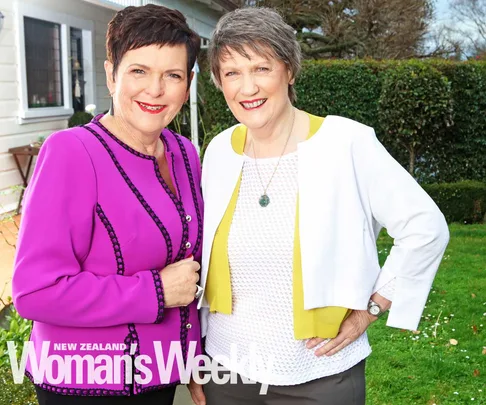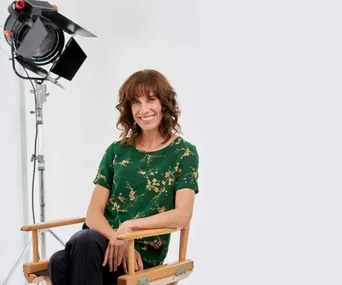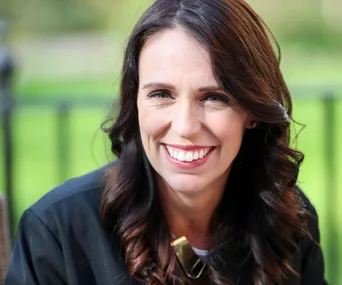Dame Jenny Shipley is standing in front of the Weekly‘s camera, a commanding figure in royal purple as she stares straight down its barrel.
“Oh, that’s a stunning jacket, Jenny,” comes a familiar low voice from around the corner. Helen Clark strides down the path and takes her place next to her former adversary.
“Oh, thanks,” replies Jenny. “It’s an oldie but a goodie.”
Gingerly, thanks to her recently broken arm that’s only been removed from its sling for our photos, Jenny places her hand on Helen’s shoulder. The two women grin.
“This will cause a political scandal!” Jenny hoots, as Helen laughs.
“What’s that phrase people use?” asks Helen. “Mutton dressed as lamb?”
“No,” asserts Jenny. “We’re both lambs.”
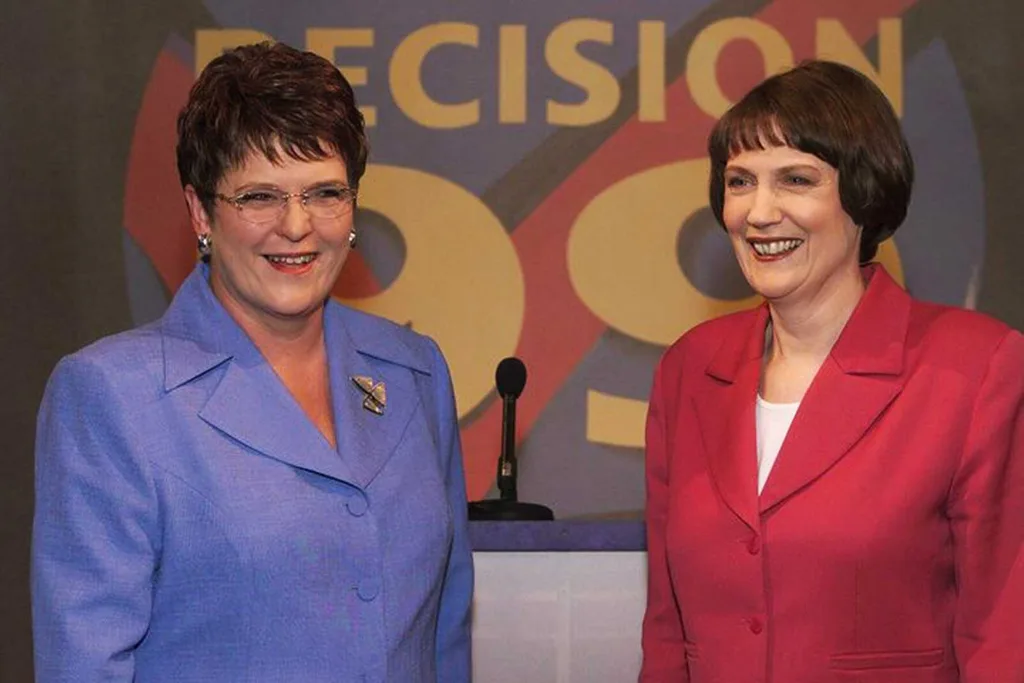
Dame Jenny Shipley and Helen Clark battled for New Zealand’s top job in 1999.
The first and second female Prime Ministers of New Zealand together – laughing, joking, sharing finger sandwiches, and bacon and egg pies – is, at first, as jarring as you’d expect.
Pitted against each other in the mid-1990s as the nation came to terms with the fact that two women occupied both the top job and the Leader of the Opposition, the idea of Shipley vs Clark has endured long after the duo departed politics.
As rumours and assumptions raged – because surely the two most powerful women in the country hated each other − Jenny and Helen, the history-makers, rule-breakers, reveal today the reality was quite different.
Did they fight? Of course they did – “unholy rows” as Jenny describes them. Did they plot? Oh, yes. But not in the way you may expect.
As New Zealand gears up to celebrate the 125th anniversary of women’s suffrage next month, Jenny and Helen reflect on their time in the Beehive over a cuppa – coffee for Jenny, tea for Helen – and the battles they fought together.
“When Helen and I were young, we got dragged into arguments as to whether we were judging each other,” says Jenny.
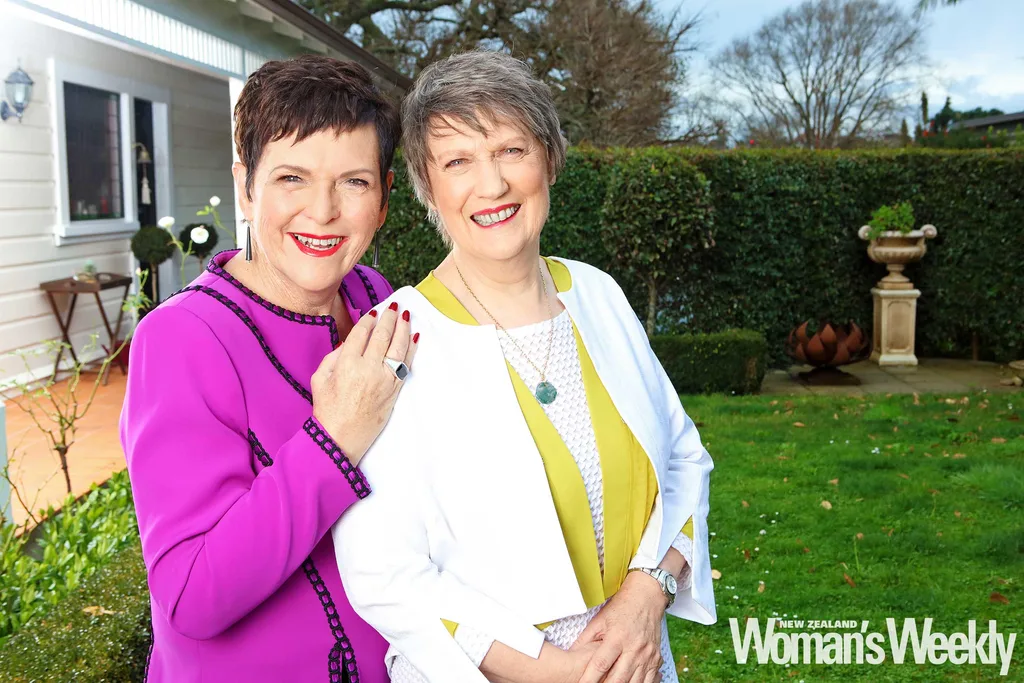
“The media wanted a catfight,” adds Helen (68).
“But we didn’t give it to them. We knew it would be demeaning to us both. Which is what they wanted, as well.”
“Helen and I argued in the chamber as you would expect,” nods Jenny (66).
“But we were never going to denigrate each other – well, I certainly wasn’t − and I never observed Helen doing that either. There was the odd colourful spat, and a contest of ideas, sure. We vehemently disagreed.
“But we often chat now – and we did then. Helen and I still don’t agree on everything, but I immensely respect her leadership, and I expect it’s reciprocated. We’re leaders in our own right – we don’t need the National or Labour parties for that. It doesn’t define who we are.”
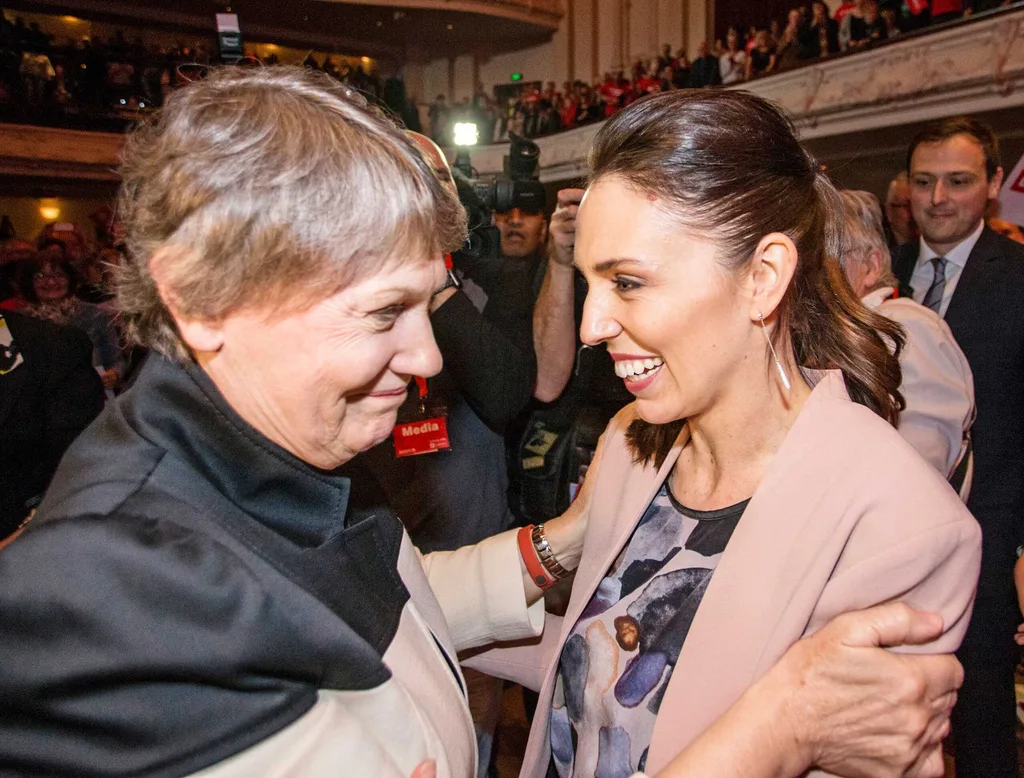
It’s been almost 20 years since Jenny and Helen faced off for the top job, with Helen’s Labour Party defeating Jenny’s National.
Both admit it’s easier for them to be closer now – “we shouldn’t pretend that’s not the case”, Jenny says – but there was always a solidarity between the two women, right from the time they entered into a very exclusive club, one that still only numbers three.
“I mean, if you look back you’ve got myself, Helen and now Jacinda [Ardern],” says Jenny. “Three quite different women, all of whom have, by choice, led quite different lives, and who think very differently. And that’s a strength.
“New Zealand women now have three alternative role models, which gives them the liberty to be who they are. The conversation is certainly further along than our time, isn’t it Helen?”
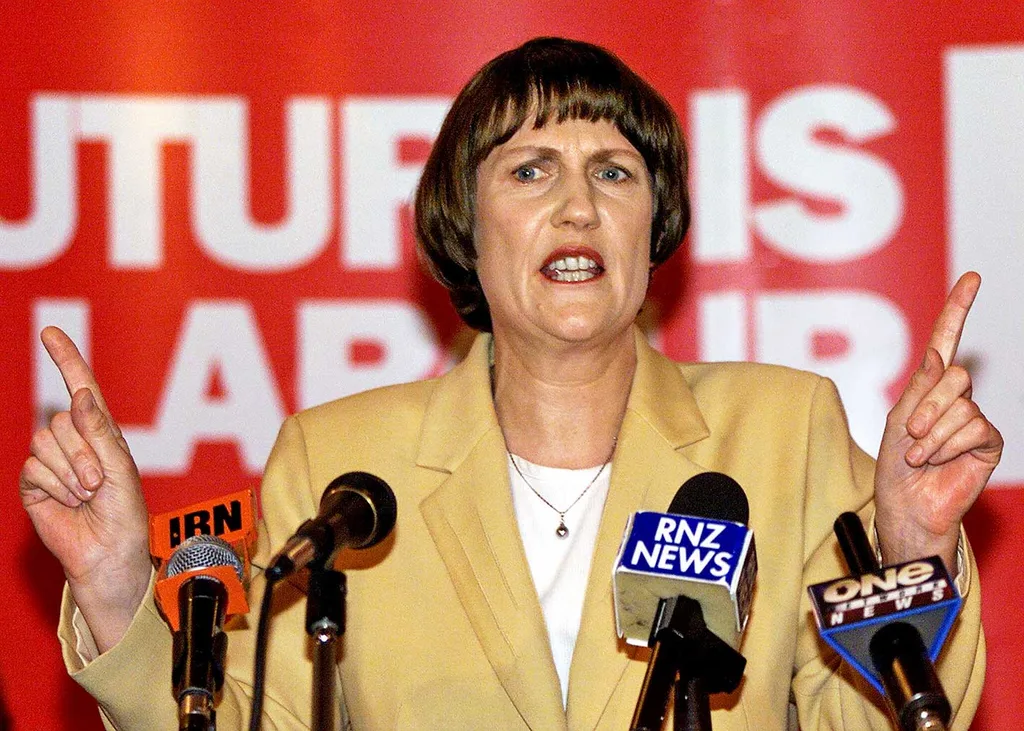
“It is,” she replies, adding, “When you look at the political scene when we first started out, could you ever have envisaged a 37-year-old woman, living with a partner and having a baby could be a successful Prime Minister? It was unthinkable.
“I mean, at 37, I was just starting my ministerial career at 17 on the list. I would have no more thought of being PM than shooting for the moon!”
Listening to the two reminisce about their time at the top, their mutual friends and their careers post-politics is quite remarkable.
Helen’s familiar drawl rises and falls between impassioned, incredulous and blunt as the conversation flows, mingling with Jenny’s more formal tone, her words big, important and measured.
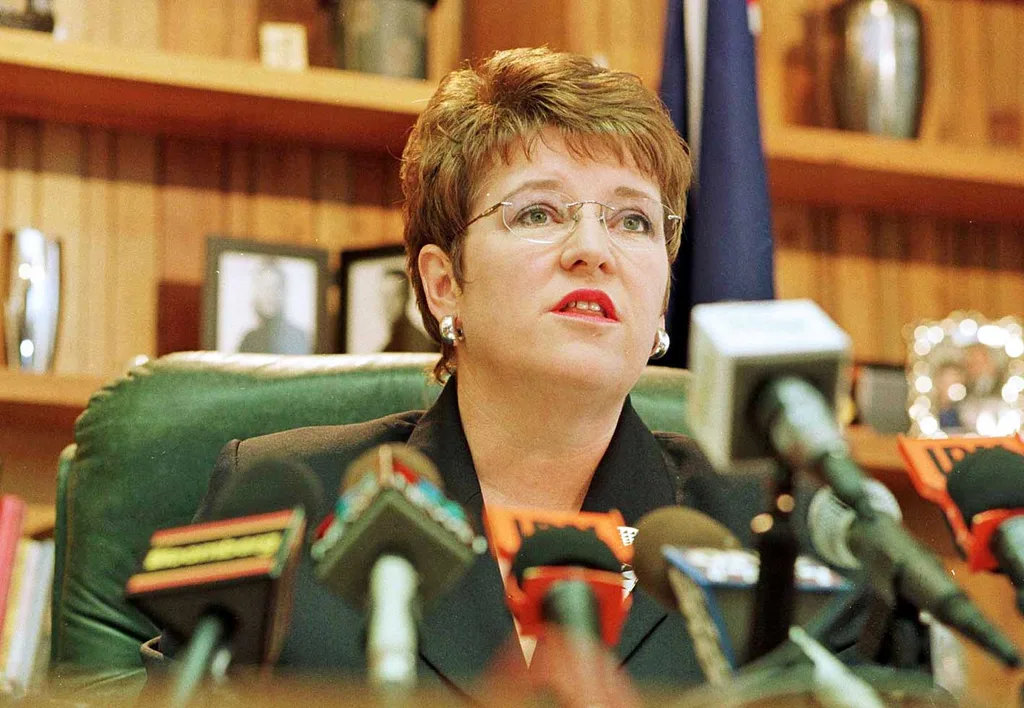
They obviously still carry the values of their separate parties. As they peruse a rack of jackets and blouses – a wonderful, rainbow collection of shoulder pads – Jenny’s selections are purple, blue and blue, thanks to her own supply of blazers brought in by her husband Burton. He dropped her off at our shoot as she’s still unable to drive following a fall seven weeks ago.
“I missed a step and fell onto tiles. I shattered the top part of my arm, and under this is still a spectacular bruise,” she tells, pointing to the right side of her face, which is currently sporting a much thicker layer of make-up than usual.
But despite differing ideological values, Jenny and Helen were firmly united in Parliament on many issues, and worked together many times in an effort to sway their more traditional colleagues to a modern way of thinking.
“There were times where we did plot,” Jenny says with a small smile.
“Not so much as to how we’d be nice to each other, or how we’d behave [in public], we didn’t need to do that, but how we could restrain the more conservative elements of our caucuses.”
“Jenny, for example, was very progressive on sexual reproductive health rights at a time when a lot of men didn’t see it that way,” nods Helen. “There was always a lot of solidarity on those issues.”
Adds Jenny, “I remember saying to my caucus I was going to the Hero Parade in 1998… I knew there was no way we couldn’t move to an inclusive approach, and I knew the power of the symbolism by showing up. I can tell you, that discussion… Well, I said, ‘I’m happy to listen to your views, but I’m going anyway.'”
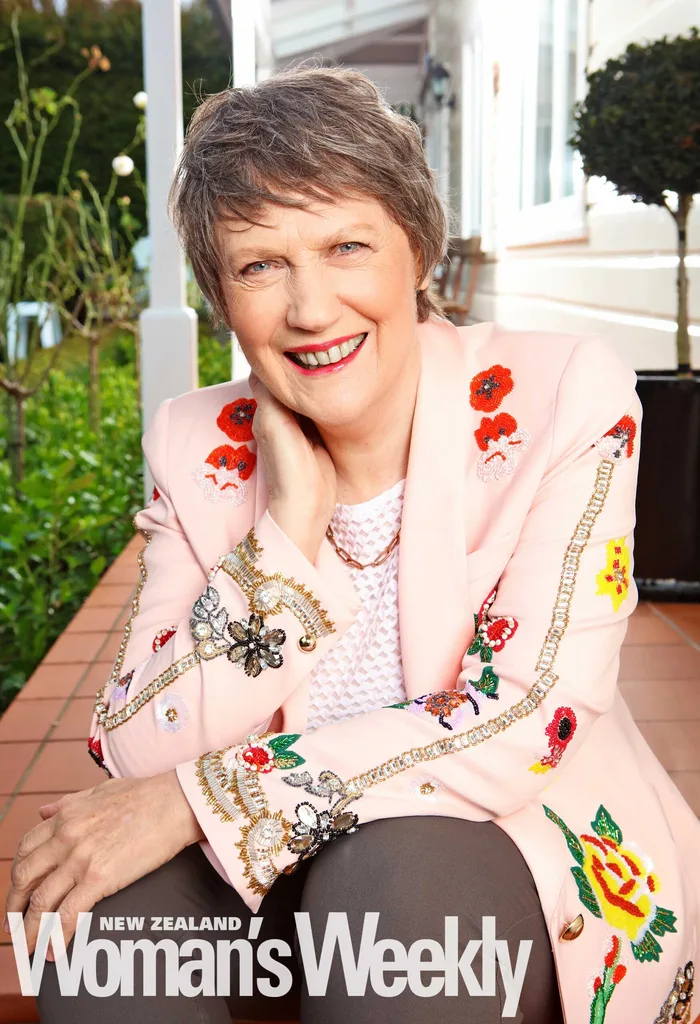
Helen’s been busy with her new book, Women Equality Power, Selected Speeches From a Life of Leadership, in bookshops September 3.
Helen laughs wryly as she remembers her own battle to pass the Civil Union Act in 2004.
“It was quite controversial and it didn’t pass through Parliament by much. But hey, within a decade, gay marriage was legislated with almost overwhelming support. You can push public opinion forward − but bandwidth in politics is a real issue. You can’t deal with it all.”
Of course, they were also united against what Helen’s dubbed “the nasty stuff” – the sexism, the bullying, the way the two women were described in comparison to their male colleagues. And then there was the institutionalised bias, which eventually led to Jenny having an almighty row with parliamentary services.
“There was no female loo on the third floor of the old building,” she begins, setting her cup down, her voice dropping dangerously low.
“When I asked why there wasn’t, they said, ‘Well, there never has been, so would I please walk down to the first floor.’ I said, ‘Well, I have no intention of doing that. I’m either going to use the men’s toilet or you’re going to fix it.’ All the women secretaries had been trotting off down there, dutifully, because of these blasted toilets, simply because it was what it had always been, and we were an unexpected inconvenience.”
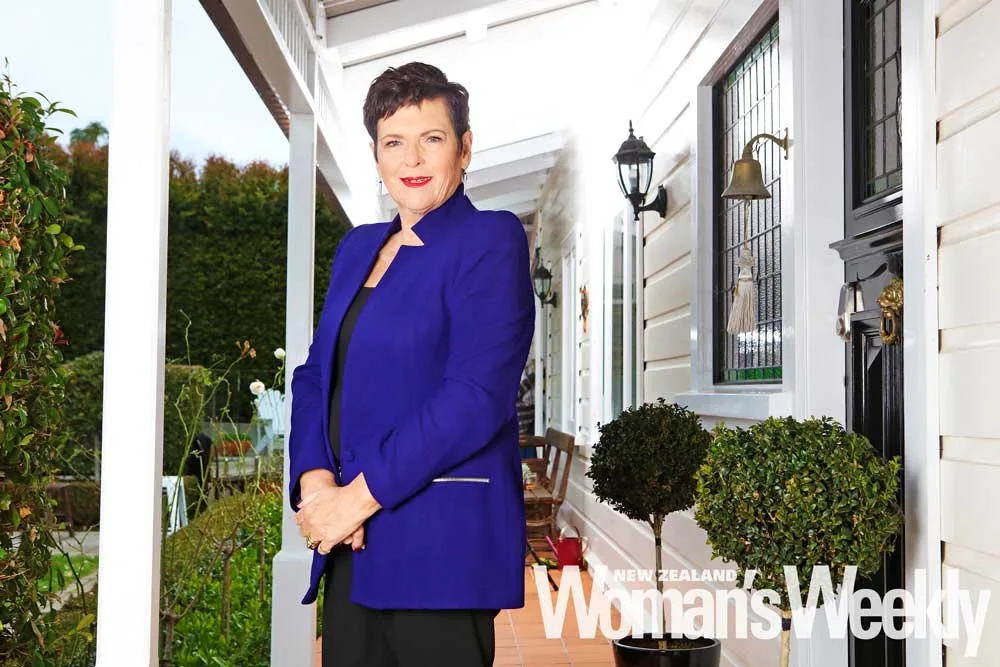
While they were navigating their way through previously unchartered political waters as female leaders, both Jenny and Helen insist they helped each other to the top, despite being fierce opponents.
“I think the fact that both of us had the positions we held made it easier for the other,” says Helen, with Jenny nodding in agreement.
“It was a real battle for me to establish myself as the Leader of the Opposition, and as a viable contender for PM, and the first election [1996], of course, I lost. Then Jenny came along and introduced a new element. But it also normalised women at the top, no question. And the fact I was Leader of the Opposition probably made it possible for Jenny to staircase up as well. We mutually leveraged.”
“No question,” Jenny says. “And we weren’t going to be passengers. We were going to do what we’d gone there to do – and we won the support of our colleagues.”
Playing the ball, not the player, is how Helen defines the battles she and Jenny fought – “generally”, she smiles. Both knew the perils of playing into a narrative, but both found themselves caught between somewhat of a rock and a hard place in 1999, as the public grappled with the idea of a strong female leader. It’s the one thing that still irks Jenny.
“I take complete offence to that old cliché – ‘Oh, you must have been good because you weren’t acting like a woman.’ That got thrown around a bit after I became PM. To do well as a woman, you must have acted like a man. It’s just… ugh! We were conditioned to think it.”
“I’ve reflected a lot about this,” adds Helen. “And I’ve come to the conclusion that the only barriers I’ve ever faced were gender-based, and they were in politics – and eventually at the UN. I sailed through life thinking there wasn’t anything I couldn’t do, until I started hearing these voices when I put up my hand in politics, things like, ‘Oh, she’ll never do any good in a working man’s seat.'”
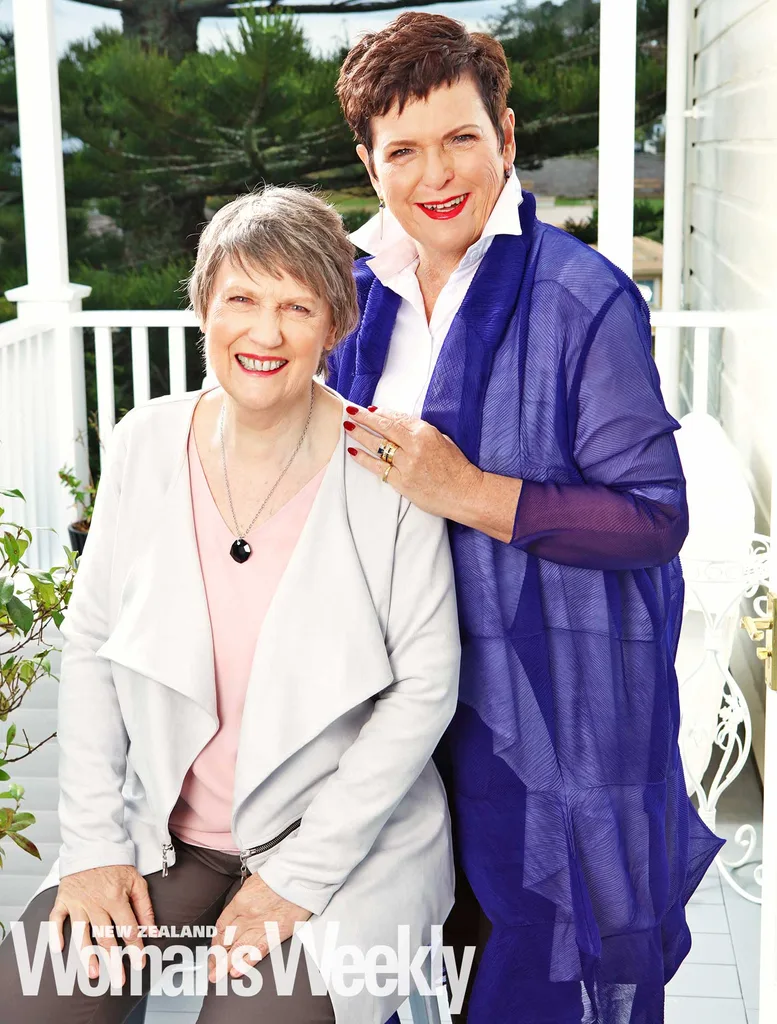
“By the time Jenny and I were on the rise in the ’90s, we still had to get over that. People still didn’t think a woman could be PM. But you knock it over.”
“You do,” Jenny nods.
As they observe a new generation fighting on the foundation they laid, both women are hopeful for true equality, with what Helen calls “a third wave of feminism”.
“[Jenny and I] created a platform, I think,” she says.
“We did,” Jenny agrees. “But it’s a big step along from where Helen and my generation were.
“I remember with the student loans, I remember the banks coming in, saying, ‘We’ll back the men, but we won’t back the women,’ and us just saying, ‘We’re not having it unless it’s equal.’ And things like the cervical screening debacle, which Helen started the process of correcting…”
“Oh, that report [the Cartwright Inquiry], it’s still shocking to read,” exclaims Helen. “How they sat there and watched these women develop cancer because a couple of fusty fuddy-duddys had the view it wouldn’t lead to that. And they just watched and women died.”
Today, full equality is possible, they both insist. Pay inequality is down to 10 per cent; female members of Parliament number almost 40 per cent; and ongoing discussions around domestic violence and the #Metoo movement are empowering women the world over.
“It’s reached a critical mass,” says Helen. “Also, events like Hillary [Clinton] not becoming president… when she was clearly the most qualified candidate! It gets women thinking.”
And it’s evidenced in the number of celebrations and commemorations of New Zealand suffrage, with more attention and media coverage being given to the 125th milestone than even the 100th anniversary in 1993.
“It’s different this time,” Jenny says. “It’s more human. With #Metoo, women found their voice. And I think it’s a fantastic illustration of our country. We’re young, we’re agile and we can do things. Those women wanted things, and they went out and got them.
“The difference having women leaders has made, 125 years on… I don’t think those conversations around screenings, the morning after pill, things like that wouldn’t have happened had women not been there – that’s not a criticism of our male colleagues, it’s just common sense.”
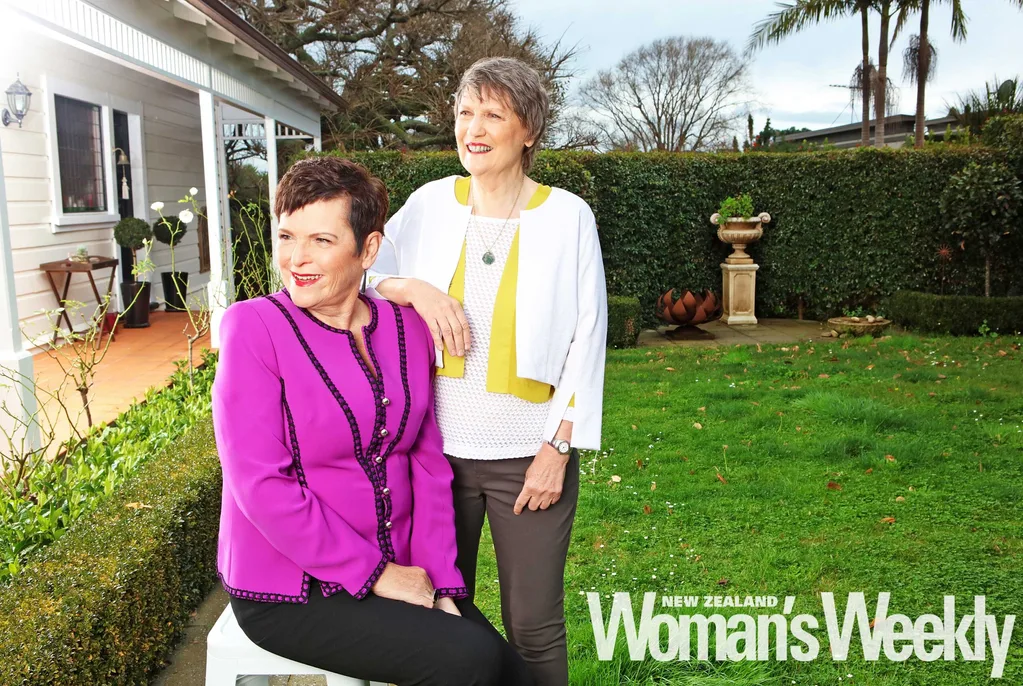
Of course, these days, Jenny and Helen don’t have to worry about driving these conversations, with the baton firmly passed on to the next generation years ago. Both have reinvented themselves post-politics – Helen at the UN and Jenny as a businesswoman. Their separate careers still see them cross paths, especially overseas as they promote New Zealand’s interests.
“Our story is one we should tell,” Jenny says. “The world needs to think about this more. You can have three women, with very significant capabilities, with very different world and family views, with the same commitment to their country. Helen and I go to the States, and people still ask us, ‘Is the US ready for a female president?'”
“Yes!” Helen cries, shaking her head.
“We were gobsmacked we’d even be asked this question… You assume everyone else is in our space, but they’re not,” continues Jenny. “We’re brave, we’re courageous. New Zealanders aren’t afraid of what’s over the horizon. Every New Zealander came from somewhere; we all came from a long way to be here, to what Dame Anne Salmond calls ‘the last best place on earth’.”
“I had the opportunity to be whatever I wanted to be,” adds Helen. “That’s New Zealand.”
With the photos done and the interview wrapped up, the pair make their way down the stairs – carefully, in Jenny’s case. Burton’s arrived back to pick up Jenny and greets Helen warmly as he loads up the car.
“My hope now,” Jenny calls over her shoulder, “is for women not to have to fight the battles Helen and I fought. My message would be, be who you are. Don’t let others define you.”
“That’s right,” Helen adds, offering Jenny a warm smile and jumping in her own car. She leaves imparting a thought every Kiwi woman reading this story will already know.
“When men and women lead together, you get a whole lot more done.”
Suffrage celebrations
This year marks the 125th anniversary of women’s suffrage in New Zealand. On September 19, 1893 the Electoral Act 1893 was passed, giving all women in New Zealand the right to vote. As a result of this landmark legislation, New Zealand became the first self-governing country in the world where all women had the right to vote in parliamentary elections.
To mark this unique milestone in our history, a number of events and celebrations are taking place. For more information, head to women.govt.nz/about/new-zealand-women/history/suffrage-125.
Also be sure to keep an eye on this website to view a very special project celebrating Kate Sheppard called ‘Give Kate a Voice’. The stunning interactive spoken word video will be available to view from September 19.
